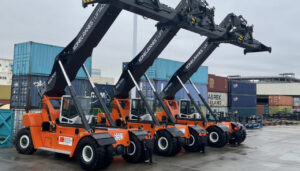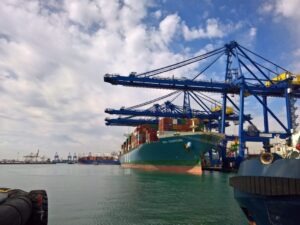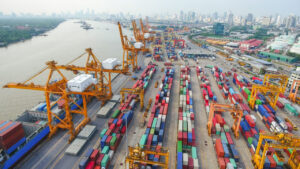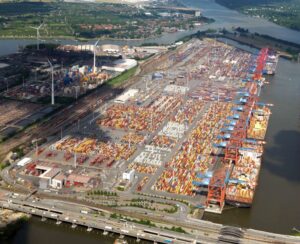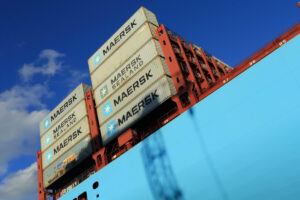Terminal operator International Container Terminal Services Inc. (ICTSI) has revealed that yard utilization at its flagship Manila International Container Terminal (MICT) is close to hitting a historic low.
According to a statement, efforts to speed up the movement of overstaying import containers has resulted in the fall in utilization, which has decreased to below 58% despite “a series of holiday periods and low trucking activity”.
A utilization rate of 70% was recorded in April 2019, which was also down from the 90% registered in January of this year.
Jupiter Kalambakal, of ICTSI, discusses the Manila Terminal in a recent Port Technology technical paper
This series of drops follows the signing of a manifesto by the Philippines’ government and private sector partners that called for container terminals to become more efficient, especially in terms of utilization.
During the same amount of time since the agreement, MICT has recorded its highest all-time throughput over a four-month period.
Christian Gonzalez, ICTSI Global Corporate Head, commented: “The significant efforts in which both the private sector and the Bureau of Customs to release longer-staying imports at the terminal has resulted in lower overall container dwell times allowing us to efficiently utilize the ample capacity to accelerate volume growth.
“We commend the Government for leading the initiative against overstaying containers, and call on stakeholders to embrace these gains by not reverting to the old ways which has been common in previous years when utilization rates drop.”
ICTSI has agreed a group-wide commitment to ensuring an environment-friendly supply chain… #PTIDaily #Manila #Terminal #Sustainability https://t.co/ZpWVCGPUwq
— Port Technology (PTI) (@PortTechnology) January 14, 2019
In 2018, ICTSI launched an USD $80 million expansion at MICT to boost productivity and manage increasing levels of demand.
This project includes the construction of Berths 7 and 8 to accommodate larger ships, while a back-up area will also be built to prepare for new berths in the future.


